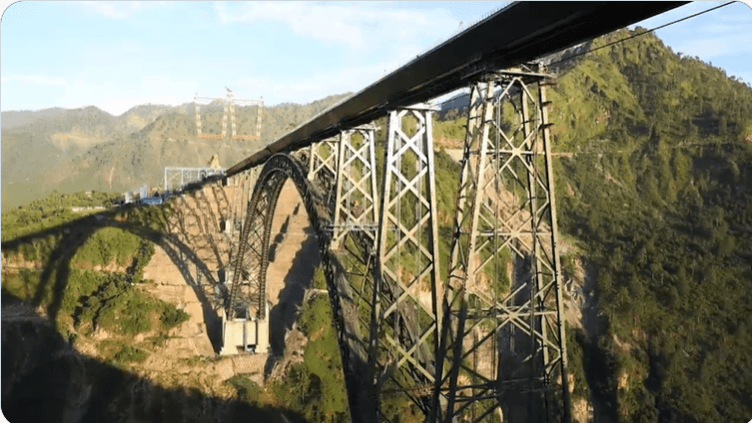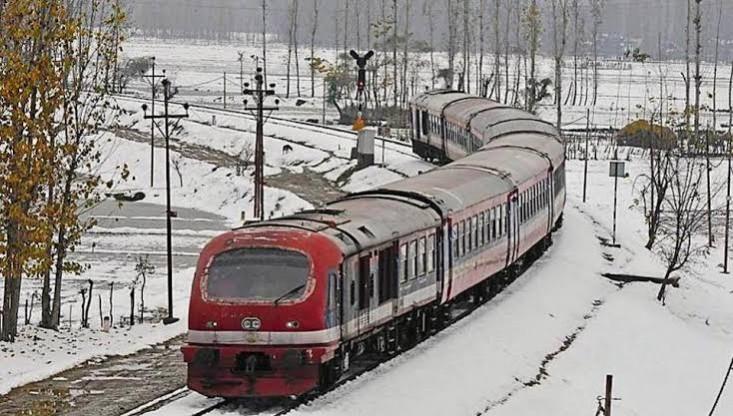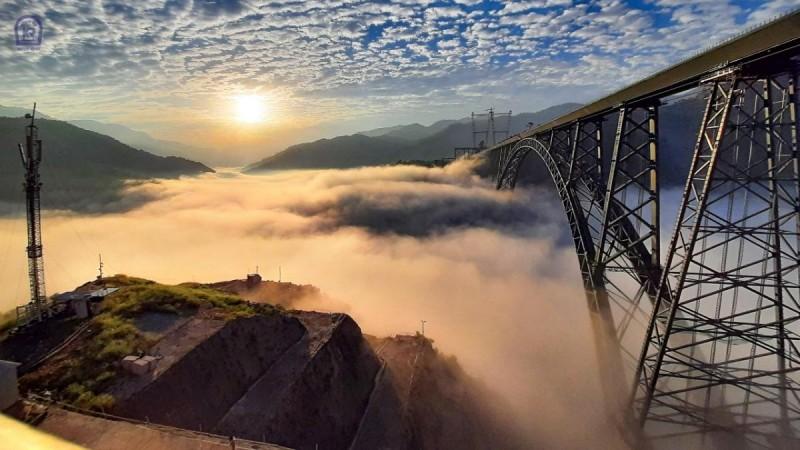
The Union Territory of Jammu and Kashmir is witnessing unprecedented security arrangements ahead of Prime Minister Narendra Modi's visit to the holy town of Katra, where he will inaugurate the much-awaited and ambitious Udhampur-Srinagar-Baramulla Railway Link (USBRL) project on June 6.
As this will be the Prime Minister's first visit to Jammu and Kashmir after Operation Sindoor, security has been significantly beefed up across the Union Territory.
In addition to inaugurating the Udhampur-Srinagar-Baramulla Railway Link, the Prime Minister will also inaugurate the Chenab Bridge—the world's highest railway bridge—located in the Reasi district of Jammu and Kashmir.
This ambitious project reflects the vision of the Government of India to provide enhanced connectivity between Jammu and Kashmir and the rest of the country while accelerating the region's overall development. The Kashmir railway project will not only ease transportation but also open new avenues for trade, tourism, and socio-economic progress.

The railway line under this project has been engineered using state-of-the-art technologies, keeping in view the challenging geographical terrain of Jammu and Kashmir.
Union Minister Jitendra Singh made the announcement about the upcoming inauguration on the social media platform X on Tuesday morning. "History in the making… Just 3 days to go! The mighty Chenab Bridge, the world's highest railway bridge, stands tall in Jammu and Kashmir. Part of the Udhampur-Srinagar-Baramulla Railway Link (USBRL). Built to withstand nature's toughest tests. PM Sh @narendramodi to inaugurate the Chenab Bridge on 6th June, 2025. A proud symbol of New India's strength and vision!" Dr. Singh posted on X.
History in the making… Just 3 days to go!
— Dr Jitendra Singh (@DrJitendraSingh) June 3, 2025
The mighty #ChenabBridge, the world’s highest railway bridge, stands tall in #JammuandKashmir.
Part of the Udhampur-Srinagar-Baramulla Railway Link (USBRL). Built to withstand nature’s toughest tests.
PM Sh @narendramodi to… pic.twitter.com/EQnC0m1per
Prime Minister Modi is also scheduled to flag off a Vande Bharat train from Katra to north Kashmir's Baramulla, and another one from Baramulla to Katra, marking the completion of the long-awaited railway project connecting Kashmir to the rest of the country. Initiated 42 years ago, this landmark infrastructure project is now nearing its conclusion. Railway authorities are finalizing preparations for the grand event.
According to reports, the Prime Minister will inaugurate the entire USBRL stretch, flagging off the train from Katra to Baramulla in person and virtually flagging off the return journey from Baramulla to Katra.
About the Ambitious USBRL Project
The Udhampur-Srinagar-Baramulla Railway Link (USBRL) is among the most ambitious railway projects in the country.
The project includes 38 tunnels spanning a total of 119 kilometers, including India's longest transportation tunnel—Tunnel T-49, which stretches 12.75 kilometers.
It also features 927 bridges covering a total length of 13 kilometers. Among these is the iconic Chenab Bridge, an engineering marvel that rises 359 meters above the riverbed—about 35 meters taller than the Eiffel Tower—making it the world's highest arch railway bridge. Made of steel and concrete, the bridge is designed to withstand wind speeds of up to 260 km/h and the highest intensity earthquakes.
Phase I of the USBRL project, covering the 118-kilometer Qazigund-Baramulla section, was inaugurated in October 2009. Subsequent phases included the 18-kilometer Banihal-Qazigund section (inaugurated in June 2013) and the 25-kilometer Udhampur-Katra section (inaugurated in July 2014).

Importance of the World's Highest Railway Bridge
The Chenab Bridge stands 35 meters taller than the Eiffel Tower.
This arch bridge, located over the Chenab River in the Reasi district of the Jammu division, connects Salal-A and Dugga railway stations through an overarch deck.
The bridge is earthquake-resistant and part of the 272-km railway project from Udhampur to Baramulla.
It spans 1,315 meters and stands on 17 pillars, constructed using 28,660 metric tonnes of steel, at a cost of Rs 1,486 crore.
The installed arch alone weighs 10,619 metric tonnes.
The steel used is capable of withstanding extreme temperatures, ranging from -10°C to -40°C.
The bridge is designed for a minimum lifespan of 120 years and is built to support trains running at speeds of up to 100 km/h.

















